Eleanor Roosevelt doesn’t ever do anything that is going to hurt her husband. She tries things out on him. She gets permission to do things.
BLANCHE WIESEN COOKBut it’s also the beginning of another level of liberation for her]Eleanor Roosevelt], because when she returns to New York, she gets very involved in a new level of politics.
More Blanche Wiesen Cook Quotes
-






-





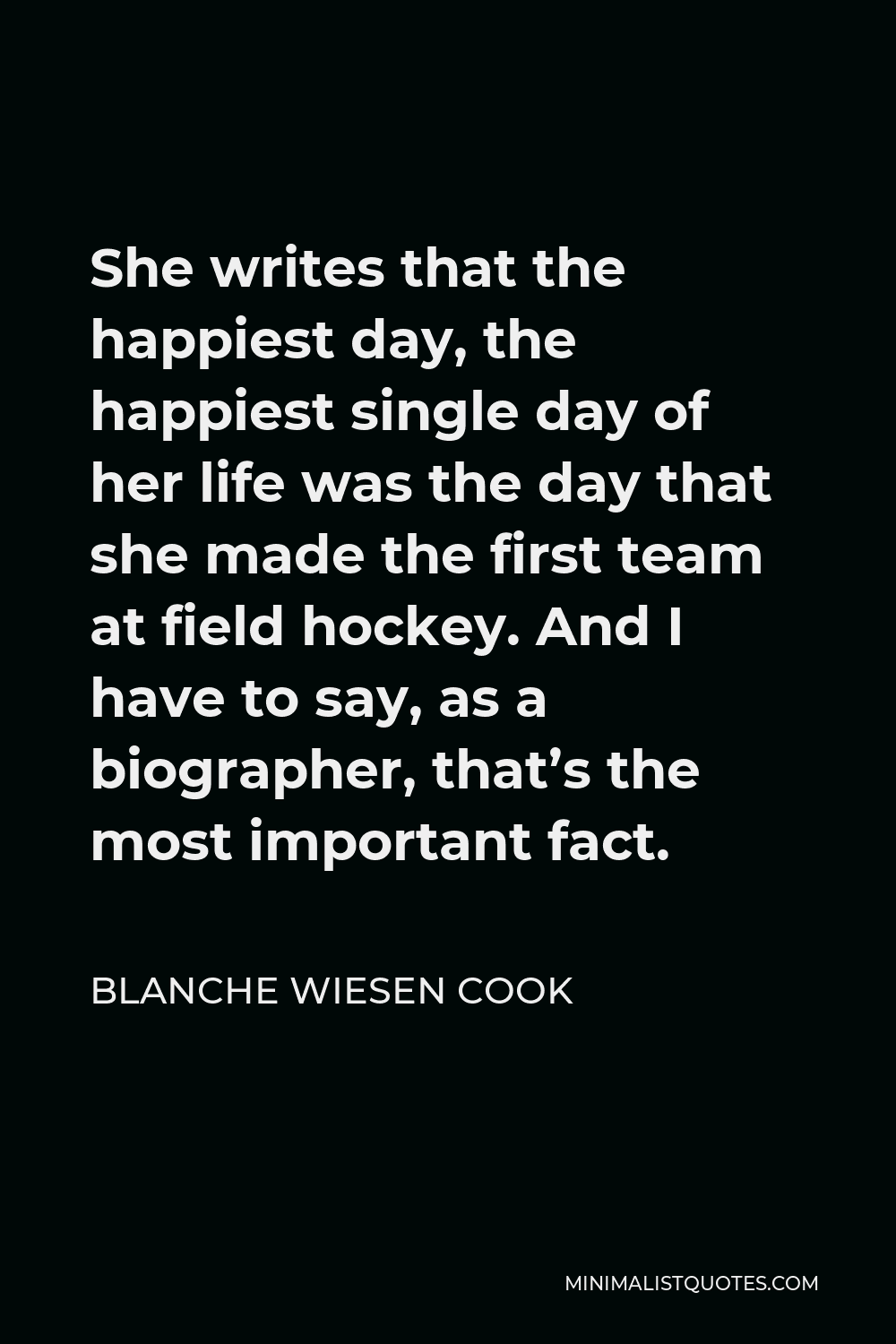
She writes that the happiest day, the happiest single day of her life was the day that she made the first team at field hockey. And I have to say, as a biographer, that’s the most important fact.
BLANCHE WIESEN COOK -





![Blanche Wiesen Cook Quote - But it’s also the beginning of another level of liberation for her]Eleanor Roosevelt], because when she returns to New York, she gets very involved in a new level of politics.](https://minimalistquotes.com/images/but-its-also-the-beginning-of-another-level-of-lib.jpg)
But it’s also the beginning of another level of liberation for her]Eleanor Roosevelt], because when she returns to New York, she gets very involved in a new level of politics.
BLANCHE WIESEN COOK -





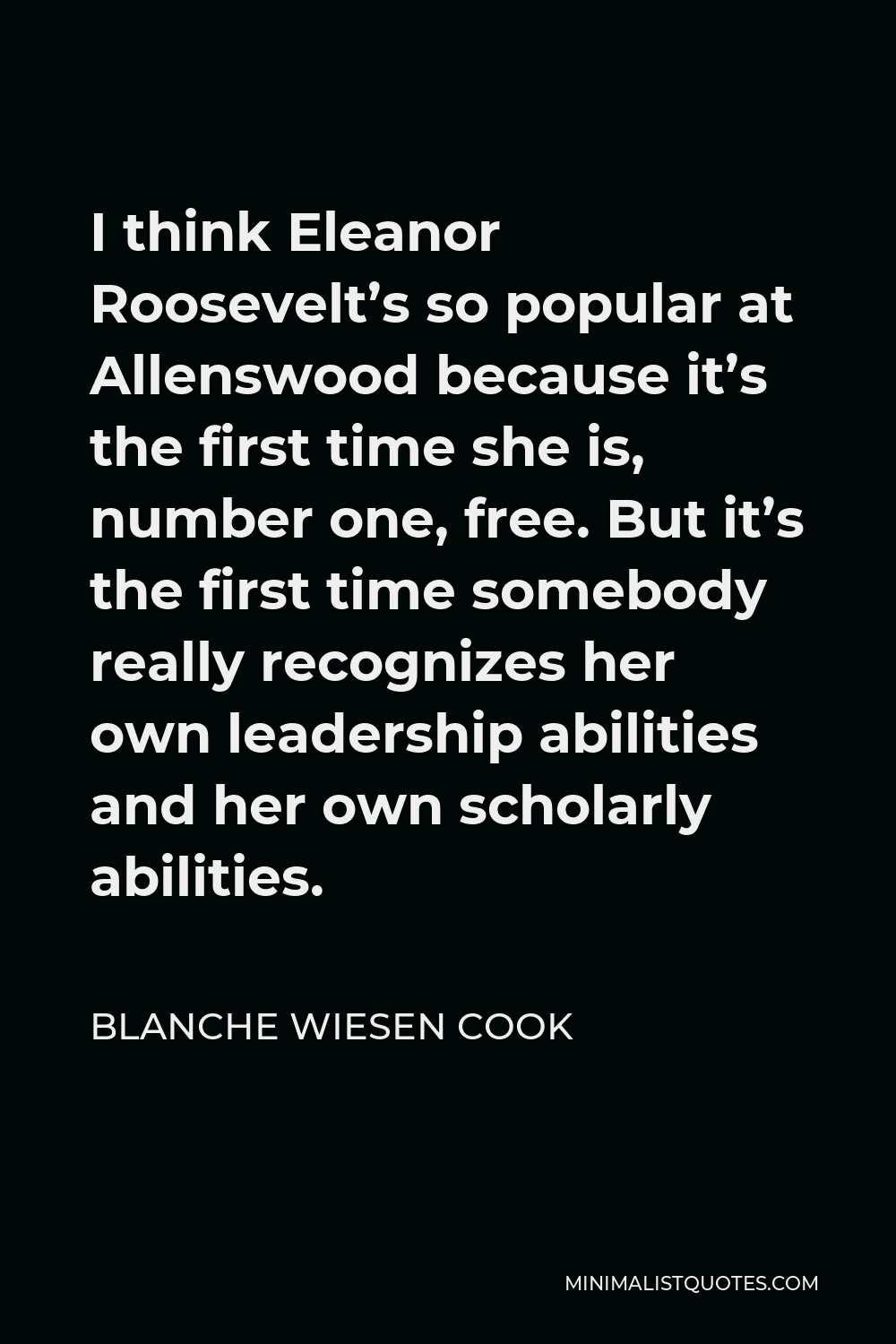
I think Eleanor Roosevelt’s so popular at Allenswood because it’s the first time she is, number one, free. But it’s the first time somebody really recognizes her own leadership abilities and her own scholarly abilities.
BLANCHE WIESEN COOK -





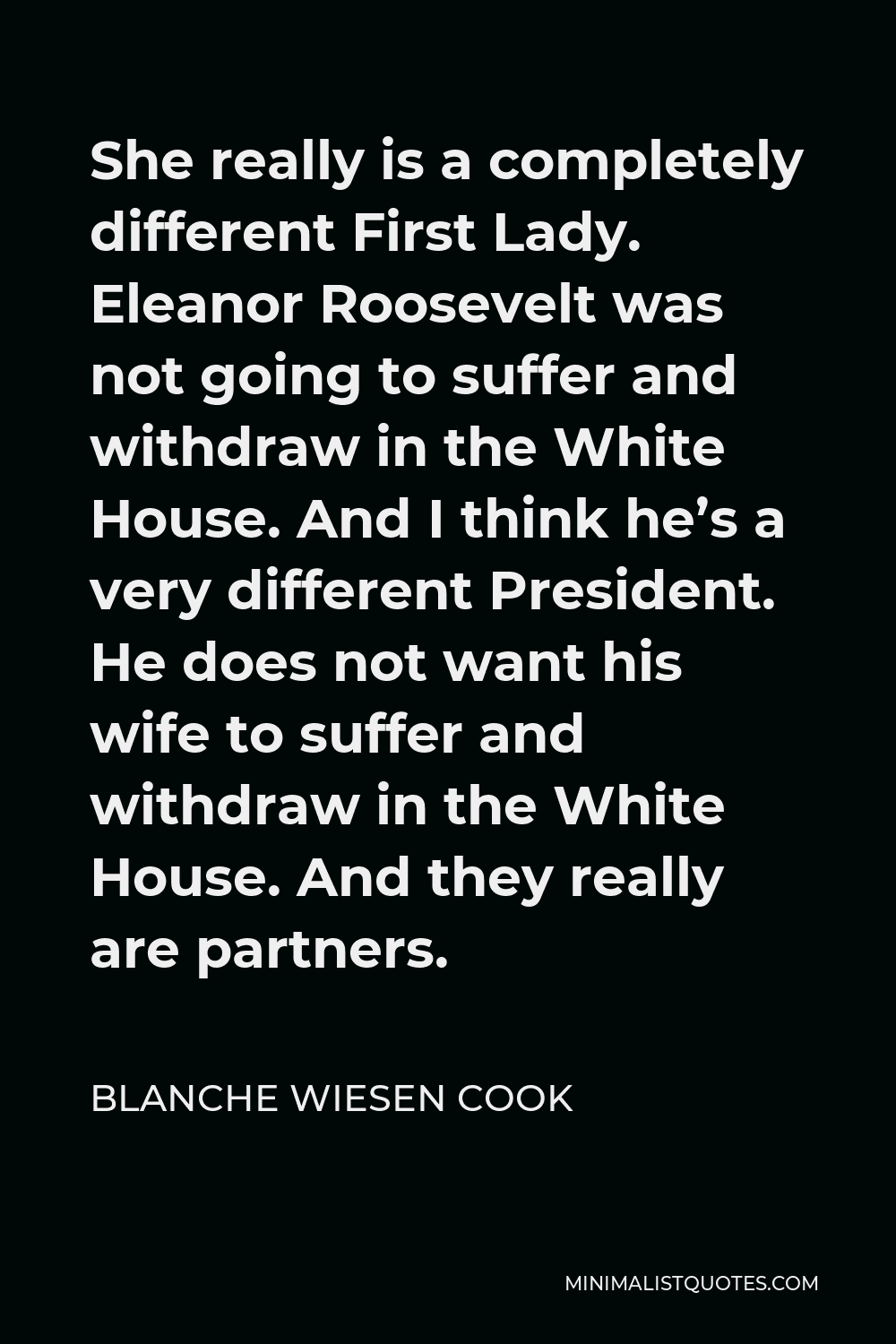
She really is a completely different First Lady. Eleanor Roosevelt was not going to suffer and withdraw in the White House. And I think he’s a very different President. He does not want his wife to suffer and withdraw in the White House. And they really are partners.
BLANCHE WIESEN COOK -





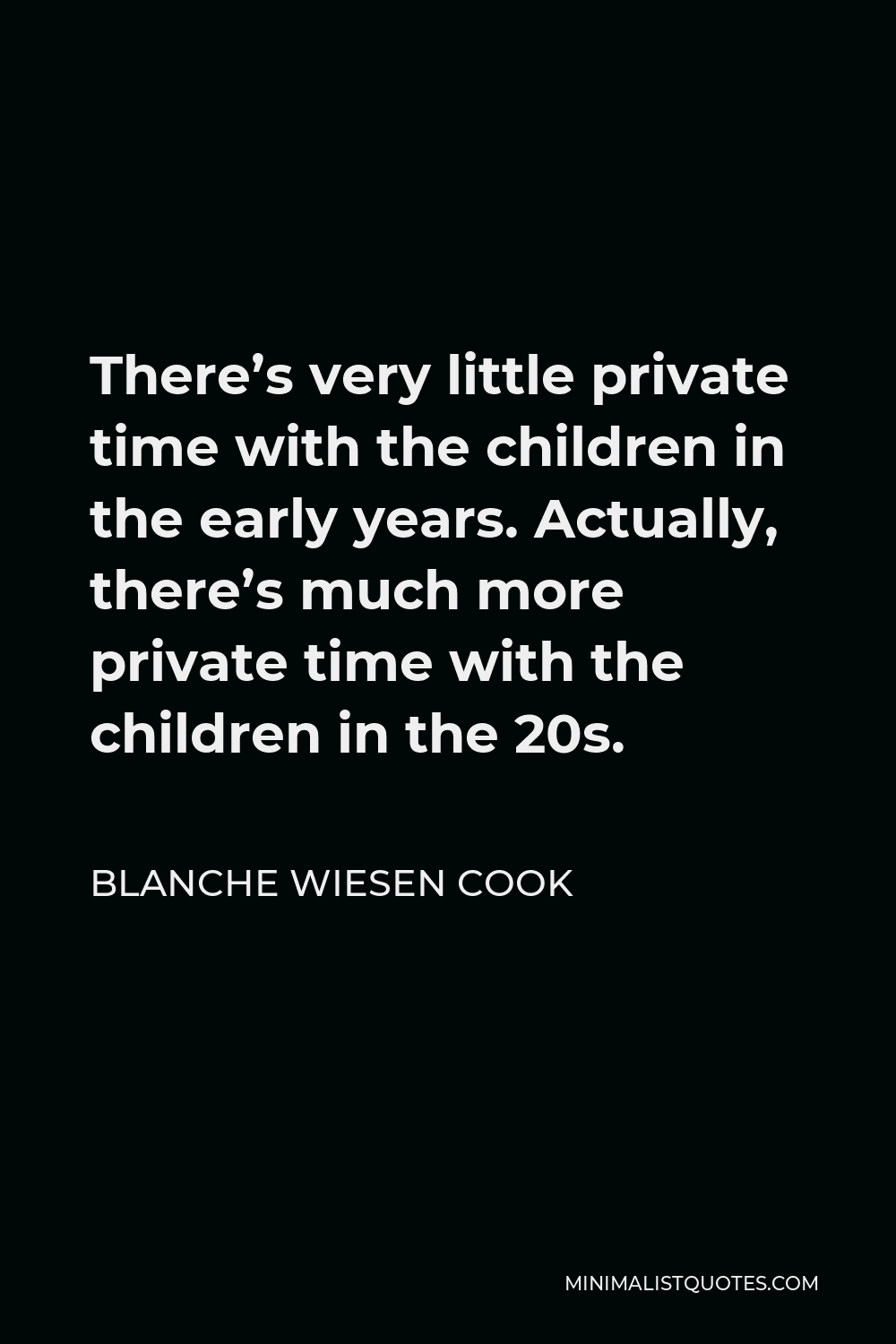
There’s very little private time with the children in the early years. Actually, there’s much more private time with the children in the 20s.
BLANCHE WIESEN COOK -





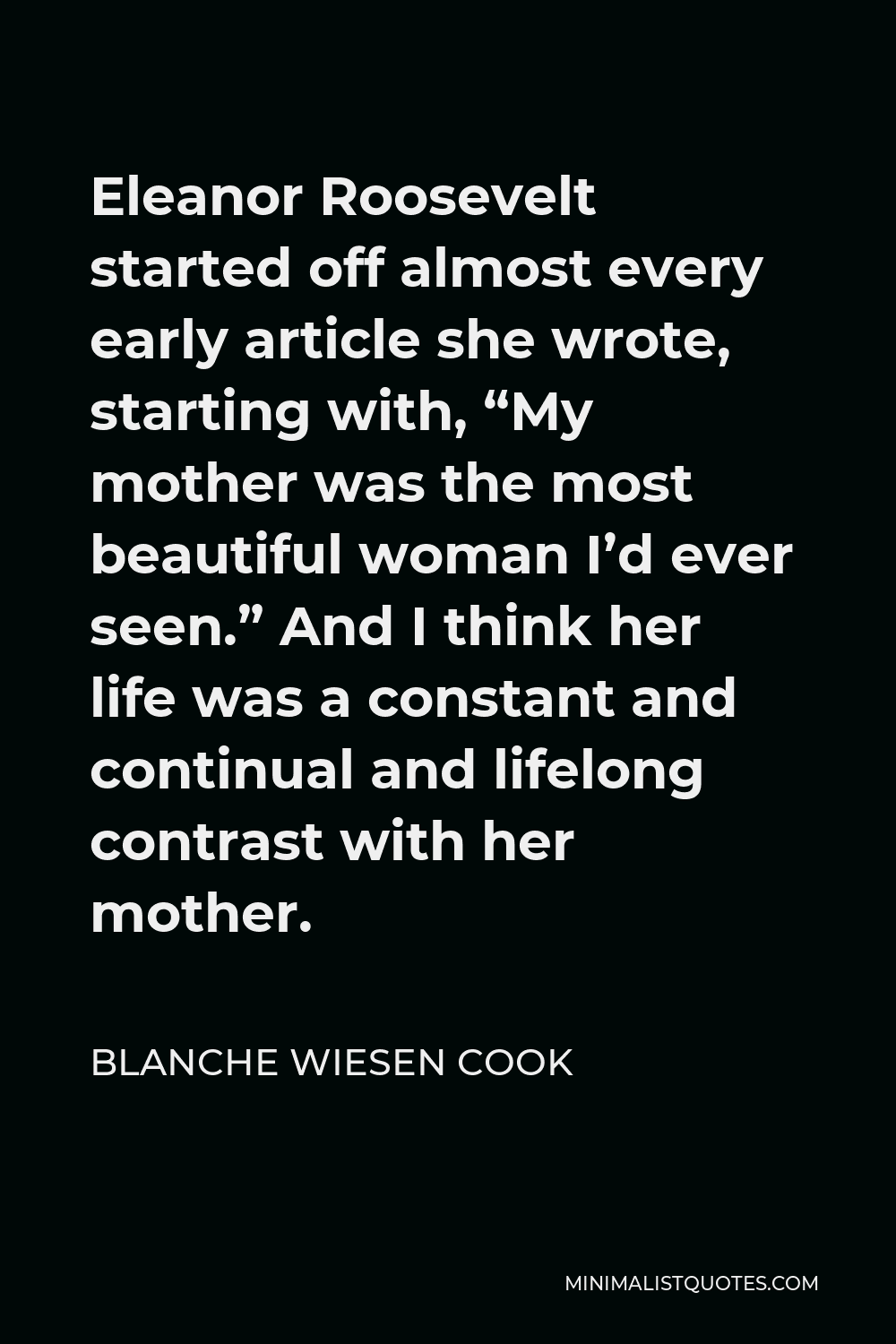
Eleanor Roosevelt started off almost every early article she wrote, starting with, “My mother was the most beautiful woman I’d ever seen.” And I think her life was a constant and continual and lifelong contrast with her mother.
BLANCHE WIESEN COOK -





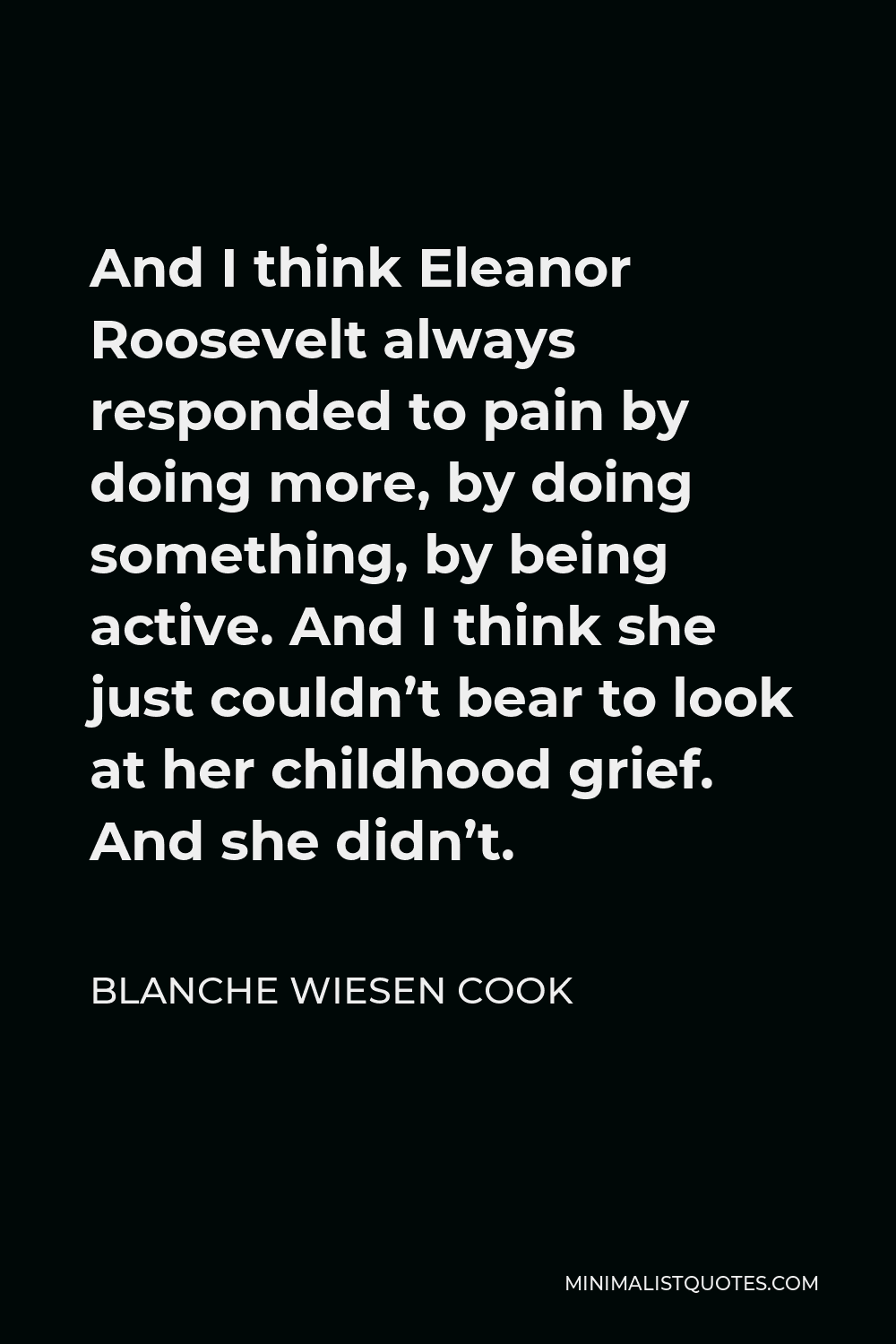
And I think Eleanor Roosevelt always responded to pain by doing more, by doing something, by being active. And I think she just couldn’t bear to look at her childhood grief. And she didn’t.
BLANCHE WIESEN COOK -





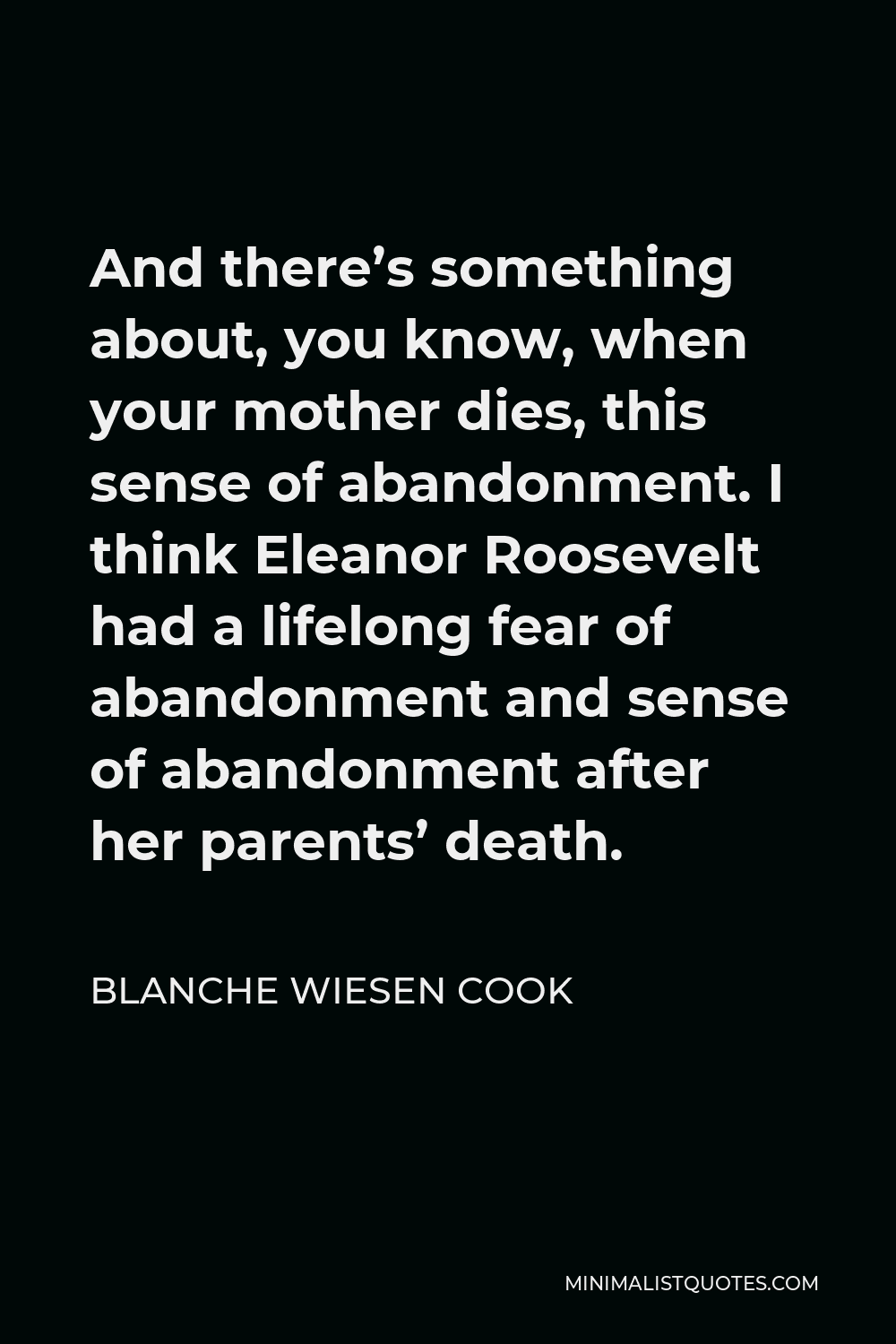
And there’s something about, you know, when your mother dies, this sense of abandonment. I think Eleanor Roosevelt had a lifelong fear of abandonment and sense of abandonment after her parents’ death.
BLANCHE WIESEN COOK -





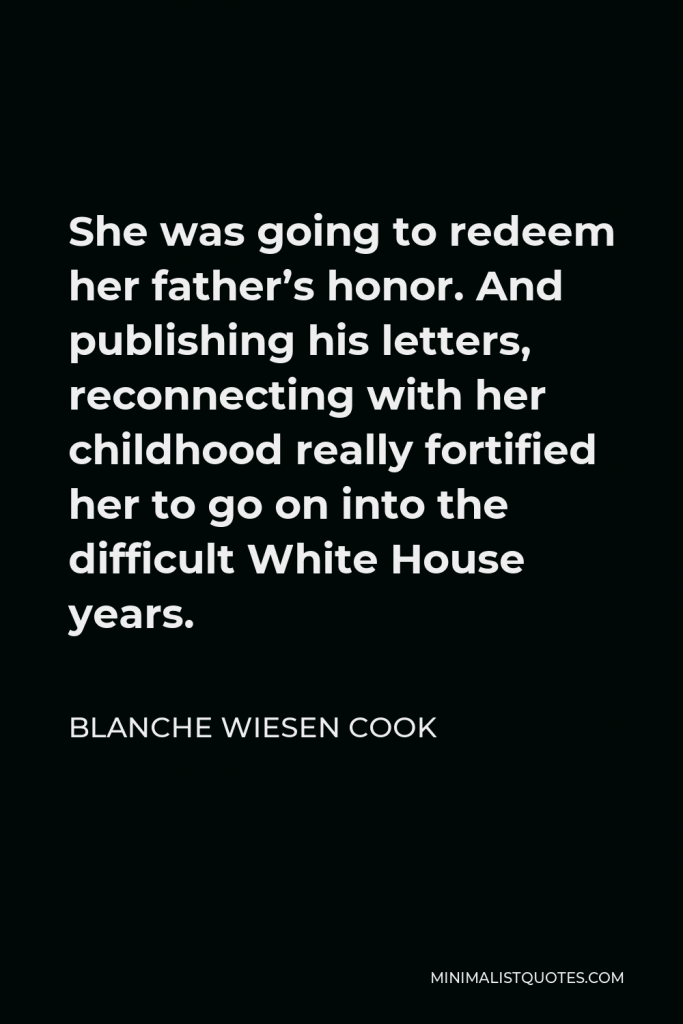

She was going to redeem her father’s honor. And publishing his letters, reconnecting with her childhood really fortified her to go on into the difficult White House years.
BLANCHE WIESEN COOK -





![Blanche Wiesen Cook Quote - So she [Eleanor Roosevelt] is an amazing First Lady. What other First Lady in U.S. history has ever written a book to criticize her husband’s policies?](https://minimalistquotes.com/wp-content/uploads/2023/03/so-she-eleanor-roosevelt-is-an-amazing-first-lady--683x1024.jpg)

So she [Eleanor Roosevelt] is an amazing First Lady. What other First Lady in U.S. history has ever written a book to criticize her husband’s policies?
BLANCHE WIESEN COOK -





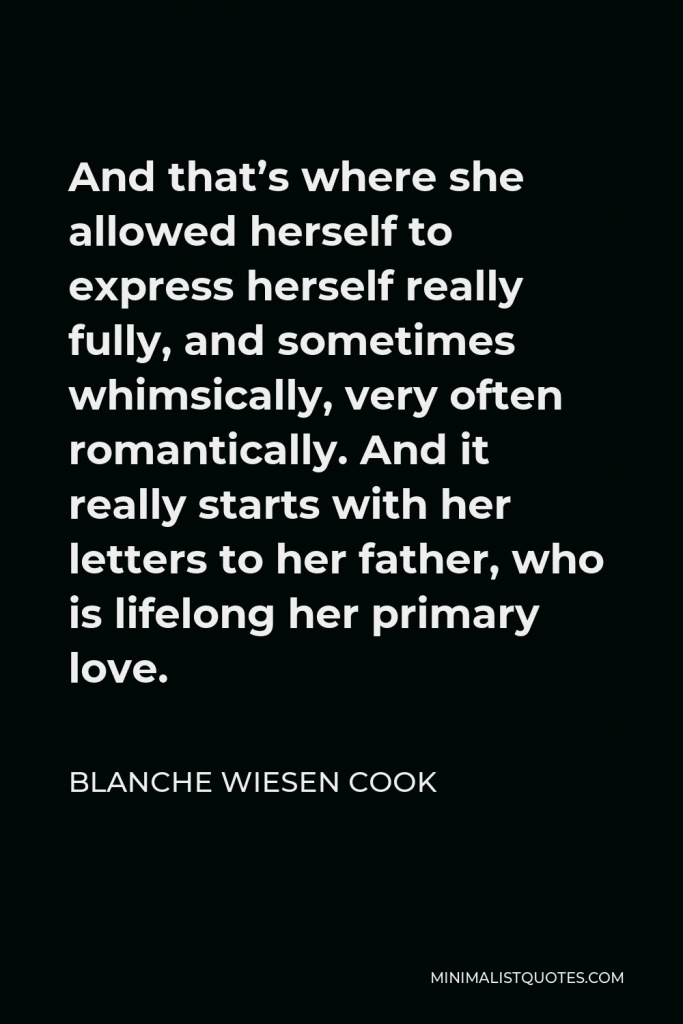

And that’s where she allowed herself to express herself really fully, and sometimes whimsically, very often romantically. And it really starts with her letters to her father, who is lifelong her primary love.
BLANCHE WIESEN COOK -





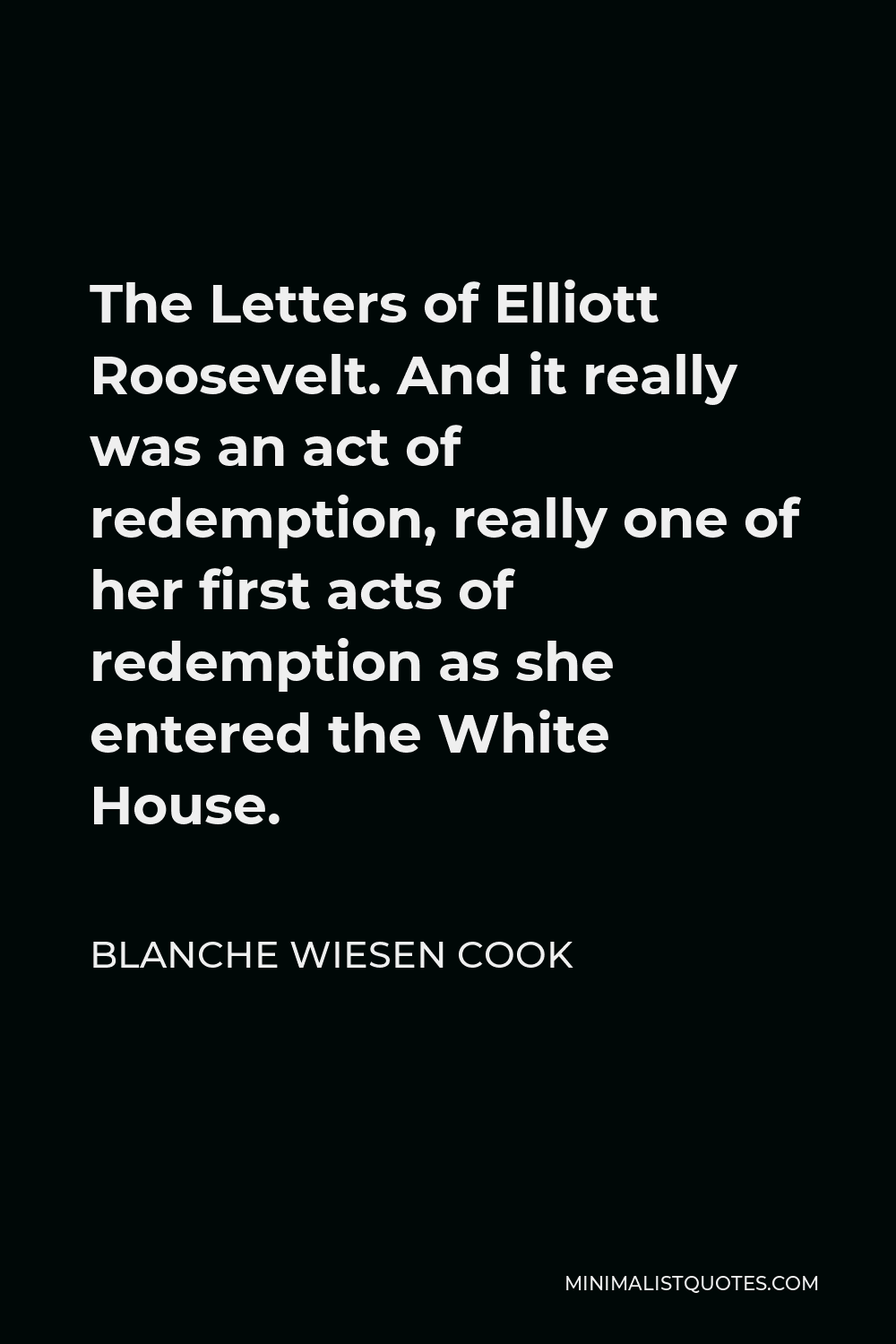
The Letters of Elliott Roosevelt. And it really was an act of redemption, really one of her first acts of redemption as she entered the White House.
BLANCHE WIESEN COOK -





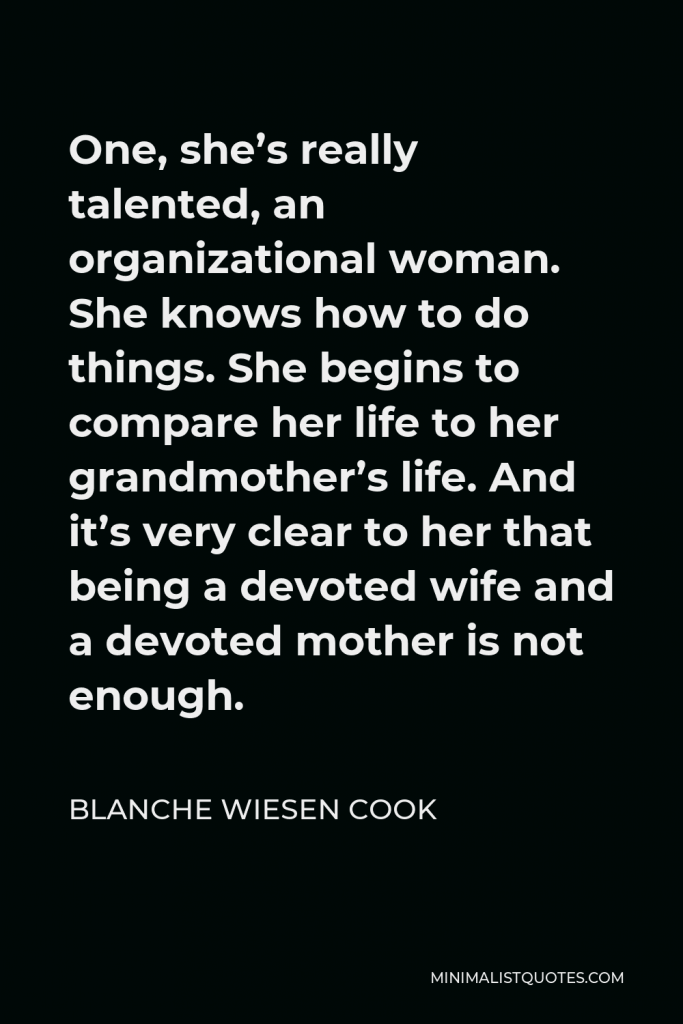

One, she’s really talented, an organizational woman. She knows how to do things. She begins to compare her life to her grandmother’s life. And it’s very clear to her that being a devoted wife and a devoted mother is not enough.
BLANCHE WIESEN COOK -





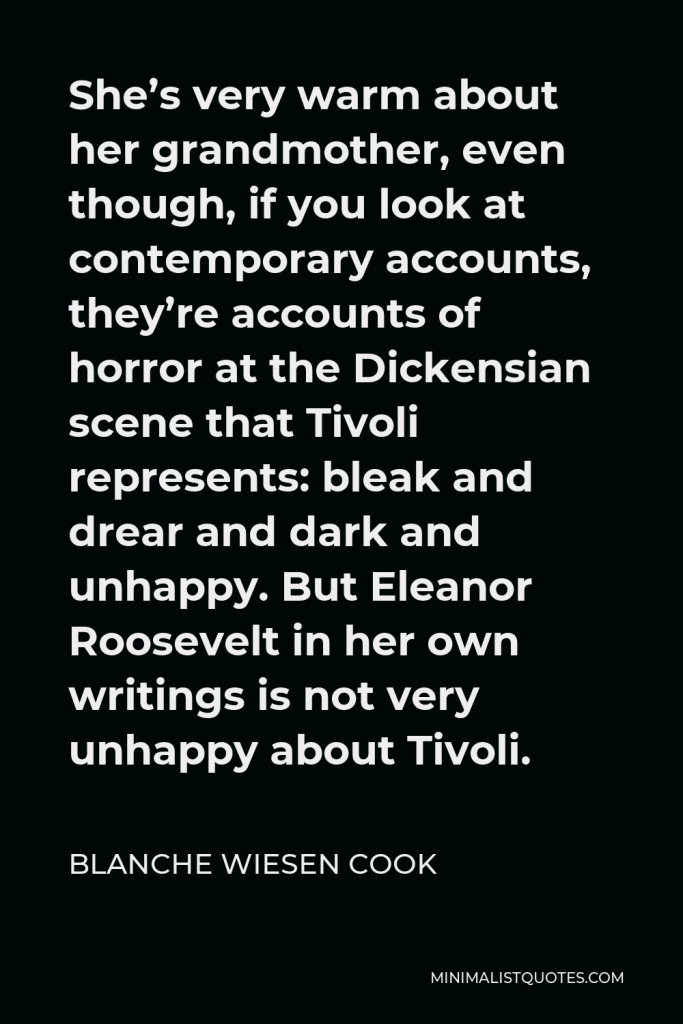

She’s very warm about her grandmother, even though, if you look at contemporary accounts, they’re accounts of horror at the Dickensian scene that Tivoli represents: bleak and drear and dark and unhappy. But Eleanor Roosevelt in her own writings is not very unhappy about Tivoli.
BLANCHE WIESEN COOK -





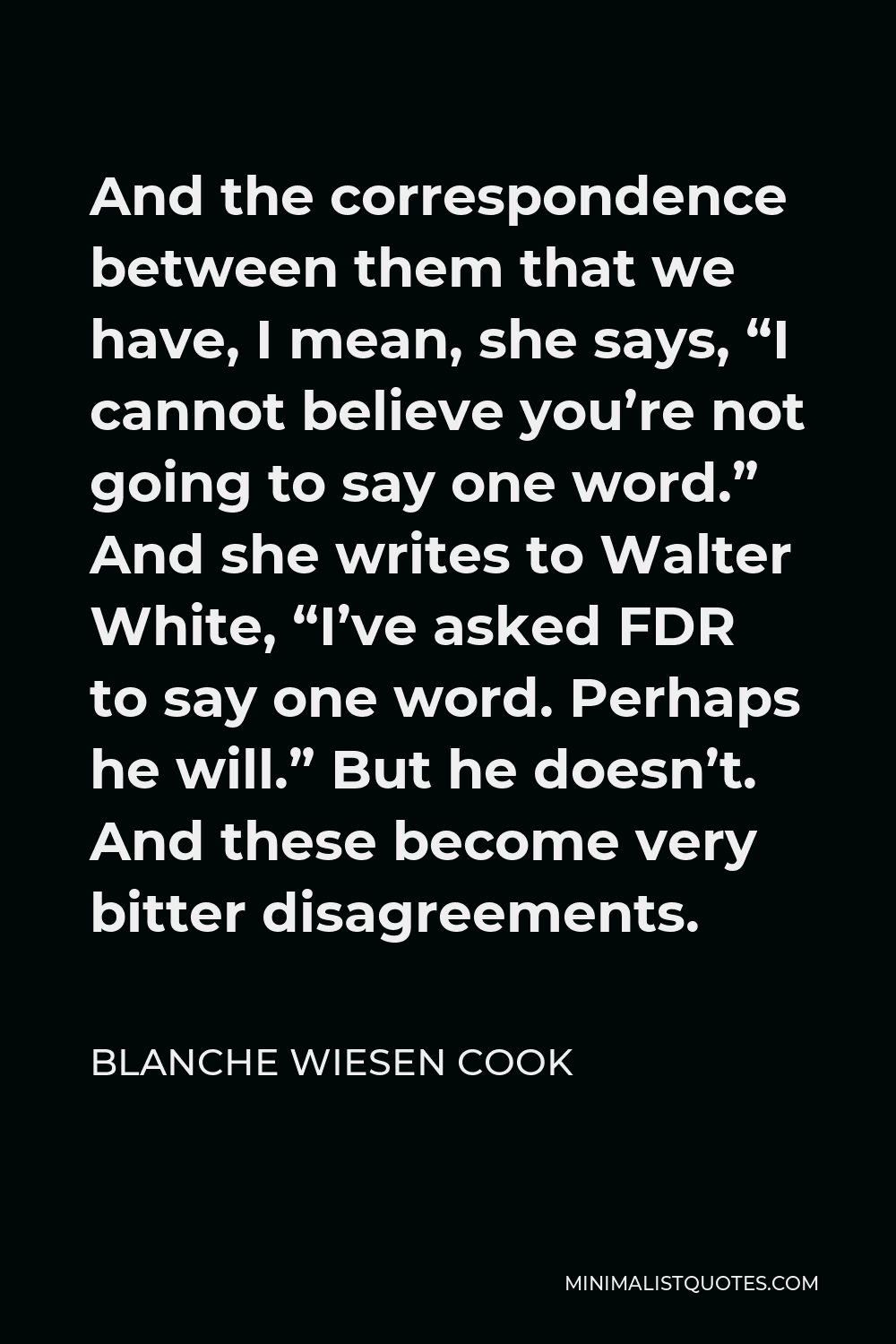
And the correspondence between them that we have, I mean, she says, “I cannot believe you’re not going to say one word.” And she writes to Walter White, “I’ve asked FDR to say one word. Perhaps he will.” But he doesn’t. And these become very bitter disagreements.
BLANCHE WIESEN COOK
![Blanche Wiesen Cook Quote - But it’s also the beginning of another level of liberation for her]Eleanor Roosevelt], because when she returns to New York, she gets very involved in a new level of politics.](https://minimalistquotes.com/images/grey-but-its-also-the-beginning-of-another-le.jpg)
![Blanche Wiesen Cook Quote - But it’s also the beginning of another level of liberation for her]Eleanor Roosevelt], because when she returns to New York, she gets very involved in a new level of politics.](https://minimalistquotes.com/images/blue-but-its-also-the-beginning-of-another-le.jpg)
![Blanche Wiesen Cook Quote - But it’s also the beginning of another level of liberation for her]Eleanor Roosevelt], because when she returns to New York, she gets very involved in a new level of politics.](https://minimalistquotes.com/images/red-but-its-also-the-beginning-of-another-le.jpg)
![Blanche Wiesen Cook Quote - But it’s also the beginning of another level of liberation for her]Eleanor Roosevelt], because when she returns to New York, she gets very involved in a new level of politics.](https://minimalistquotes.com/images/brown-but-its-also-the-beginning-of-another-le.jpg)
![Blanche Wiesen Cook Quote - But it’s also the beginning of another level of liberation for her]Eleanor Roosevelt], because when she returns to New York, she gets very involved in a new level of politics.](https://minimalistquotes.com/images/white-but-its-also-the-beginning-of-another-le.jpg)

